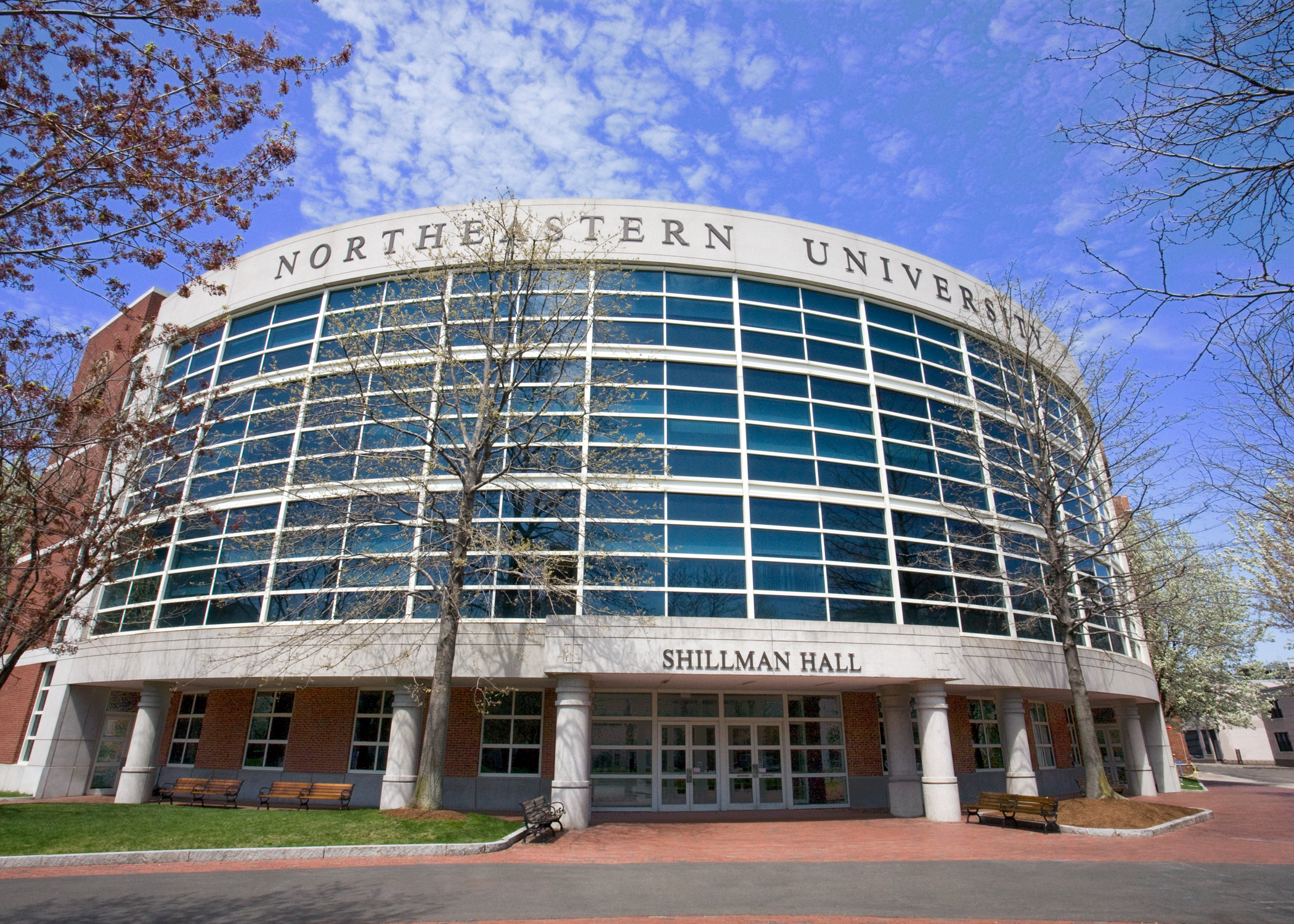Last month, Northeastern’s Student Government Association (SGA) hosted a town hall meeting to provide the student body and general public with an opportunity to discuss the five proposed referenda questions being considered for the Spring 2016 ballot. For SGA, the meeting was intended to serve as a show of good faith that would allow students to play a significant role in the referenda vetting process by providing direct input. After a year of student criticism of the SGA’s non-representative nature and lack of transparency, many viewed the town hall as an indication that the Association was finally responding to its constituents’ concerns and reforming itself accordingly. Unfortunately, the meeting ultimately proved to be a disappointment. It was held in a room with limited capacity beyond SGA members. While a few students and members of the public were allowed in, approximately 30 students found themselves left behind closed doors. Whether a logistical planning failure or an attempt to limit student activists’ involvement, it served as a troubling reminder of SGA’s penchant for privileging Association members’ voices over those of the students it supposedly represents.
After speaking with student organization leaders, senators, and high-level members of SGA leadership, I’ve reached the conclusion that Northeastern SGA as an institution is flawed and in need of systemic repair — the Association as it exists today is unaccountable, non-transparent, and unrepresentative of the student body.
SGA has been criticized for its lack of transparency for years, especially with regard to its referenda approval process. Every spring, SGA is tasked with the responsibility of vetting proposed referenda questions to assess them based on three criteria: feasibility, fairness of wording, and adherence to university policy. At the end of the spring semester, referenda questions approved by SGA appear on the ballot for the student body’s vote, along with candidates for the next year’s President and Executive Vice President.
SGA voted on this year’s proposed referenda on February 25th. It approved two referenda from the Husky Environmental Action Team. It rejected referenda from Students for Justice in Palestine (SJP) and from Students Against Institutional Discrimination (SAID). These rejections have prompted an outcry from students, some of whom claim that the vetting process borders on autocracy.
Attempts at Reform
These accusations are not new. Last year, following SGA’s rejection of Students for Justice in Palestine’s referendum, students criticized the Senate for politicizing the vetting process and allowing personal views on the Israeli-Palestinian conflict to affect what should have been an objective vote on the referendum’s adherence to the three aforementioned criteria. In response to the blowback, SGA formed a Referenda Reform Committee, comprised of authors of past referenda, student organization leaders, SGA Executive Cabinet members, senators, and general students. The Committee met several times during the Fall 2015 semester in an attempt to reform the vetting process and promote objectivity and accountability.[1]
The Committee produced a list of recommendations for SGA. Most significant among these was a call to transfer the responsibility of vetting referenda from the Senate to the much smaller Executive Cabinet.[2] The Committee’s rationale was that by transferring the decision from a group of sixty to a body of six, it could minimize room for partisan debate.[3] The Committee also recommended releasing a record of the referenda voting results to the public in order to increase transparency.[4] These recommendations were debated in the Senate and written into SGA’s bylaws.
This year’s vetting process has demonstrated the difficulties of implementing these new policies. The bylaws clearly state that the vetting process is now the responsibility of the Cabinet, but they are vaguer when it comes to the second recommendation. The Committee recommended:
“Although Executive Cabinet meetings are typically held in executive session [and thus private], the results of the vote of this meeting should be made public so as to increase transparency and ensure accountability with the student body.”[5]
This recommendation was adapted into a bylaw, which states:
“The Executive Board shall examine and approve or deny the question based on feasibility, adherence to University policies, and fairness in wording. Voting records from this approval shall be made public on the Association’s website within seventy-two hours of the vote.”[6]
The bylaw is worded in such a way that it is unclear precisely what constitutes a voting record. Some of this year’s referenda authors were under the impression that “voting records” meant a list linking Cabinet members by name to their votes, whereas some members of SGA believed the records should simply consist of a numerical count of votes for/against a proposal or abstaining — thus keeping individual Cabinet members’ votes anonymous. Ultimately, the Cabinet decided to employ the latter interpretation and retain their anonymity.
Email Controversy and the Cabinet’s Hypocrisy
I spoke to several Cabinet members for this story. They cited “safety concerns” as the reason for not releasing the individual voting records. Selmon Rafey, Vice President of Student Involvement and one of the six Cabinet members who vetted the referenda this semester, received an anonymous email the day before the scheduled vote. The text of the email was empty, but the subject line read, “Jew hater.” A day earlier, Rafey had met with Students for Justice in Palestine to discuss their proposed referendum; he posited that the email could have been a criticism of him for taking that meeting or an attempt to sway his vote on the SJP referendum. Rafey stated that he was “personally and professionally undeterred” by the email.[7]
Rafey received the email on Wednesday, February 24th. On Thursday, the Cabinet voted on the five proposed referenda. On Sunday, SGA President Eric Tyler emailed memos to the leadership of both Students for Justice in Palestine and Students Against Institutional Discrimination to inform them that the Cabinet had rejected their respective referenda by a count of four nays, zero yeas, and two abstentions. When SJP and SAID’s leadership questioned Tyler about the absence of individual voting records, he responded that “the recommendation was to leave the voting process vague in the bylaws in case certain situations arose. We did have one e-board member receive a harassing e-mail so we will not be releasing the individual votes, only the vote counts.”[8]
Executive Vice President Morgan Helfman and President Tyler both expressed that while VP Rafey was not concerned about the email, other members of Cabinet felt threatened.[9] Rafey told me that when he brought the email to the rest of Cabinet’s attention, they seemed surprised but did not press him to investigate the source of the message further. At the time of this writing, SGA has not launched an investigation, and according to President Tyler, there is no intent to pursue the issue in the future.[10] If the email wasn’t threatening enough to warrant any sort of investigation, why is it still being invoked as the rationale for not releasing the individual voting records?
At face value, this may seem unimportant. SAID and SJP’s referenda did not pass, and knowing who voted against them will not change that fact. What I find startling is the complete lack of accountability and transparency in the process. SGA’s secrecy leaves me to wonder whether Cabinet members are ashamed of how they voted, or if perhaps they are worried about backlash from students in the aftermath of an unpopular voting result. And if it is the latter, that is a troubling indication that they are unwilling to be held accountable to their constituents.
SGA’s Lack of Transparency and Accountability
Of the six Cabinet members who vetted the referenda, only one was directly elected by the student body. The other five were elected by the Senate — another body that is not elected by the students. If we cannot have a direct say in who represents us, can we at the very least expect a modicum of transparency when our representatives vote on issues that directly affect us?
While the Cabinet claims that their decision to withhold the individual voting records stems purely from fear of harassment, Referenda Reform Committee member and former senator Neel Desai has heard differently. Desai reported that high-level Cabinet officials told him they were concerned that their votes on certain controversial issues could hurt their future career prospects. “I was disappointed with how senior Cabinet members implemented the Committee’s recommendations, despite there being clear intent behind the language. It seems as though they didn’t want the pressure, and they didn’t want to take responsibility for their votes,” he elaborated.[11]
Regardless of the true intentions behind keeping the voting records private, the decision was a cowardly one. If Cabinet members truly feel threatened by the student body to the point of withholding their views on student affairs, then perhaps they are not qualified to represent us. Part of assuming public office is voluntarily forfeiting a portion of your privacy; it is unfair and unreasonable to expect your constituents to remain ignorant of your voting record.
There is a chasm at Northeastern between Student Government and the student body. We must have a conversation about the purpose of referenda and the Association’s role in vetting them. SGA’s constitution states that it “serves as the voice of the undergraduate student body” and “strives to promote student interests within the University and its surrounding communities in order to enrich education, student life, and the overall Northeastern experience.” So what should be taken into consideration when vetting proposed referenda? SGA’s bylaws state that a referendum is “a direct vote in which the undergraduate student body is asked to either accept or reject a particular proposal,” but it is unclear whether referenda are intended to serve as a litmus test for the student body’s opinion on a particular issue, or whether they are meant to bring about measurable change at the university.[12] This debate is at the heart of the controversy surrounding the referenda vetting process.
SGA insiders are well aware that the institution is riddled with problems. Neel Desai rated the level of transparency and accountability of SGA as “extremely poor” and remarked that SGA has “failed to hold up its responsibility to the students whom it volunteered to represent.”[13] Executive VP Morgan Helfman conceded, “The constitution sucks. I know it sucks. That’s why we can amend it.”[14] VP of Student Involvement Selmon Rafey acknowledged room for improvement in the referendum vetting process, stating, “Cabinet and Senate should realize, as the student body knows, that this process has to be continually reformed. If students feel a change should be made, then that’s something that needs to be looked at…There could be more transparency. If it were up to me, there would be a more public voting process and record. I would be disappointed if this exact referendum process stayed the same next year.”[15]
The Rejection of the SAID Referendum
Despite its awareness of the Association’s weaknesses, the Cabinet rejected Students Against Institutional Discrimination’s (SAID) proposed referendum calling for structural change in SGA. Following the vote, SAID filed an appeal with the Operational Appeals Board, but it ultimately ruled to uphold the Cabinet’s rejection.
Executive VP Helfman said that the proposal was “an amazing idea, but it can’t be done that way” because changes to SGA’s structure must be proposed as an amendment to the constitution. She added that she is currently working on legislation to make SGA more accountable to students.[16] But can SGA be effectively reformed from within, or will outside student input be required to enact meaningful change? Austin Williams, a senator and one of the authors of the SAID referendum, believes that “the only way to restore SGA’s governing mandate and to meaningfully alter its processes is to publicly acknowledge a problem and to invite the student body to collaborate in identifying solutions.”[17]
The notion that only SGA can reform SGA is a dangerous one. This line of thinking discourages progress and insulates the Association from its responsibility to heed student voices. Tasking a historically unaccountable and unrepresentative body with transforming itself into a more accountable and representative entity is overly optimistic in that it places too much faith in the Association’s willingness to swallow its institutional pride for the benefit of the student body. As such, student input regarding the structure and constitution of SGA is imperative.
Recommendations
How should we move forward? There doesn’t appear to be a clear consensus within SGA. Some Cabinet members oppose allowing Cabinet to vet referenda for fear that it is an unrepresentative body, while other members oppose leaving the responsibility to Senate for fear that it is prone to politicizing debates that should be objective. The Cabinet members with whom I spoke were also skeptical of the model that exists at other universities, in which any proposed referenda questions with enough student signatures can appear on the ballot (without SGA vetting them first).
It’s important to note that SGA representatives have decent intentions. In our conversations, they were helpful, friendly, and eager to discuss what can be done to improve our student government. That being said, the Association is fraught with glaring problems that must be addressed. If SGA insists on continuing to vet referenda, then individual Cabinet members must be held accountable for their votes. Cabinet members who decline to disclose their voting records should not be eligible to partake in the vetting process. If SGA refuses to implement these changes, then the approval process should be overhauled, and all referenda questions should be voted on directly by the student body without prior vetting.
Transparency and accountability are critically important, particularly when it comes to issues that affect our student body directly. It is time for SGA to take the steps necessary to finally become a body that truly represents its constituents’ interests. The failure to do so will initiate the loss of any remaining governing legitimacy that the Association currently retains with the student body.
[1] Neel Desai, in discussion with the author, March 9, 2016.
[2] Referenda Reform Committee, “Final Report,” Northeastern University Student Government Association, January 2016.
[3] Selmon Rafey, in discussion with the author, March 3, 2016; Neel Desai, in discussion with the author, March 9, 2016.
[4] Referenda Reform Committee, “Final Report.”
[5] Ibid.
[6] “Bylaws,” Northeastern University Student Government Association, Article V, Section E, Subsection 2b, http://www.sga.neu.edu/wp-content/uploads/2016/03/SGA-Bylaws-Updated-2016.01.11.pdf.
[7] Selmon Rafey, in discussion with the author, March 3, 2016.
[8] Eric Tyler, Email to Sara O’Brien and Sofia Perez Arias, March 1, 2016.
[9] Eric Tyler, in discussion with the author, March 10, 2016.
[10] Ibid.
[11] Neel Desai, in discussion with the author, March 9, 2016.
[12] “Bylaws,” Northeastern University Student Government Association, Article V, Section E.
[13] Neel Desai, in discussion with the author, March 9, 2016.
[14] Morgan Helfman, in discussion with the author, March 7, 2016.
[15] Selmon Rafey, in discussion with the author, March 8, 2016.
[16] Morgan Helfman, in discussion with the author, March 7, 2016.
[17] Austin Williams, in discussion with the author, March 9, 2016.



